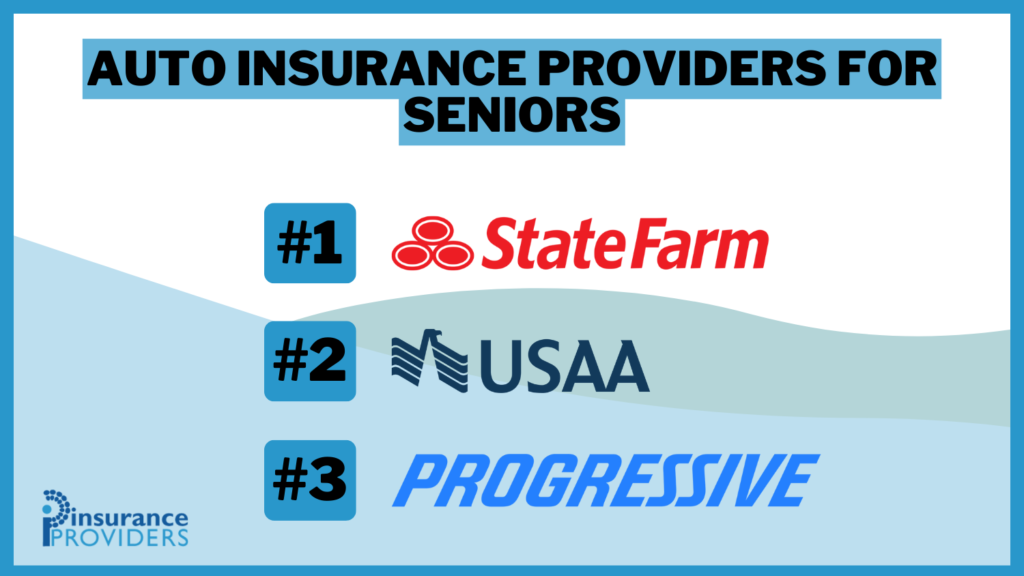Does my Auto Insurance cover other drivers of my car?
Are you wondering if your auto insurance policy covers other drivers of your car? This article explores the question and provides valuable insights on whether your coverage extends to others behind the wheel. Discover the answer and ensure you have the right protection for all drivers on the road.
Read more Secured with SHA-256 Encryption





Table of Contents
Table of Contents


Licensed Insurance Agent
Scott W Johnson is an independent insurance agent in California. Principal Broker and founder of Marindependent Insurance Services, Scott brings over 25 years of experience to his clients. His Five President’s Council awards prove he uses all he learned at Avocet, Sprint Nextel, and Farmers Insurance to the benefit of his clients. Scott quickly grasped the unique insurance requirements of his...
Scott W. Johnson


Commercial Lines Coverage Specialist
Michael Vereecke is the president of Customers First Insurance Group. He has been a licensed insurance agent for over 13 years. He also carries a Commercial Lines Coverage Specialist (CLCS) Designation, providing him the expertise to spot holes in businesses’ coverage. Since 2009, he has worked with many insurance providers, giving him unique insight into the insurance market, differences in ...
Michael Vereecke
Updated February 2024
Auto insurance is a necessity for any vehicle owner. It not only provides financial protection in case of accidents and damage, but it also offers peace of mind. However, one common question that arises is whether auto insurance covers other drivers of your car. In this article, we will explore the basics of auto insurance, factors that determine coverage for other drivers, types of auto insurance coverage, and scenarios where other drivers are covered.
Understanding the Basics of Auto Insurance
Before we dive into the specifics of coverage for other drivers, it’s essential to have a clear understanding of what auto insurance entails. Auto insurance is a contractual agreement between you and an insurance company. It provides financial protection in case of accidents, theft, or damage to your vehicle. In exchange for a monthly or annual premium, the insurance company agrees to cover the costs associated with such incidents, up to the policy’s limits.
What is Auto Insurance?
Auto insurance is a legal requirement in most states. It offers financial protection against bodily injury liability, property damage liability, and medical payments. Additionally, it can include coverage for rental vehicles, roadside assistance, and uninsured/underinsured motorists.
Key Terms in Auto Insurance
Before we delve further into coverage specifics, let’s familiarize ourselves with some key terms you may come across:
- Premium: The amount you pay to the insurance company for coverage.
- Deductible: The amount you must pay out of pocket before the insurance coverage kicks in.
- Policy Limit: The maximum amount the insurance company will pay for a covered claim.
- Policy Terms and Conditions: The specific guidelines and provisions of your insurance policy.
Now that we have a basic understanding of auto insurance, let’s explore the different types of coverage available. One common type is liability coverage, which protects you if you cause an accident that results in injury or property damage to others. This coverage helps pay for the other party’s medical expenses, vehicle repairs, and legal fees if they decide to sue.
Another important type of coverage is collision coverage. This coverage helps pay for repairs or replacement of your vehicle if it’s damaged in a collision, regardless of who is at fault. It’s especially useful if you have a newer or more expensive car, as the cost of repairs can be significant.
Comprehensive coverage is yet another type of auto insurance coverage. It protects your vehicle against non-collision incidents, such as theft, vandalism, fire, or natural disasters. If your car is stolen or damaged by something other than a collision, comprehensive coverage can help cover the cost of repairs or replacement.
Medical payments coverage, also known as MedPay, is an additional type of coverage that helps pay for medical expenses for you and your passengers, regardless of who is at fault. It can cover costs such as hospital bills, doctor visits, and even funeral expenses in the event of a fatal accident.
Uninsured/underinsured motorist coverage is designed to protect you if you’re involved in an accident with a driver who either doesn’t have insurance or doesn’t have enough coverage to pay for the damages. This coverage can help cover your medical expenses, lost wages, and even pain and suffering.
Rental reimbursement coverage is another optional coverage that can be beneficial if your car is in the shop for repairs after an accident. It helps cover the cost of renting a temporary replacement vehicle, ensuring that you can still get around while your car is being fixed.
Lastly, roadside assistance coverage is an add-on option that provides help in case of a breakdown or other roadside emergencies. This coverage can include services such as towing, jump-starts, flat tire changes, and fuel delivery, giving you peace of mind on the road.
It’s important to note that the specific coverage options and limits can vary depending on the insurance company and the policy you choose. It’s always a good idea to carefully review your policy terms and conditions to ensure you have the coverage that meets your needs.
Free Auto Insurance Comparison
Compare Quotes From Top Companies and Save
Secured with SHA-256 Encryption
Factors that Determine Coverage for Other Drivers
Whether your auto insurance covers other drivers largely depends on various factors. Let’s take a closer look at some of these factors:
Policy Terms and Conditions
The details of your auto insurance policy dictate the extent to which other drivers are covered. Some policies explicitly include coverage for other drivers, while others may only cover specifically named individuals. It’s crucial to review your policy terms to understand who is eligible for coverage.
When reviewing your policy, you may come across terms such as “permissive use” or “omnibus clause.” These terms determine whether someone who is not explicitly named on your policy can still be covered while driving your car. The permissive use clause generally allows coverage for individuals who have your permission to drive your vehicle, while the omnibus clause extends coverage to anyone driving your car with your consent, as long as they are not excluded by specific policy language.
Additionally, some policies may offer coverage for drivers who are not listed on your policy but are members of your household. This can be particularly beneficial if you have family members who frequently use your vehicle. (For more information, read our “How to Add Another Driver to Your Auto Insurance Policy?“).
Relationship to the Driver
The relationship between the driver and the policyholder can impact coverage. For example, family members living in the same household may have automatic coverage under the policy. However, friends or acquaintances who borrow your car may not be covered unless explicitly stated in the policy.
It’s important to note that even if your policy provides coverage for other drivers, it may have limitations based on the driver’s age and driving experience. For instance, some policies may exclude coverage for drivers under a certain age or those with a learner’s permit.
If you frequently lend your car to someone who is not a member of your household, it’s advisable to contact your insurance provider and discuss the situation. They may offer options to add additional coverage or suggest alternative solutions to ensure adequate protection.
Driver’s Driving Record
Insurance companies assess the driving record of any driver before extending coverage. If the driver has a history of accidents or traffic violations, it may affect their ability to receive coverage under your policy.
When considering coverage for other drivers, insurance providers typically review the driver’s history for any major violations, such as DUI convictions or multiple at-fault accidents. These factors can significantly impact the cost of coverage or even result in a denial of coverage altogether.
However, it’s worth noting that not all driving infractions will automatically disqualify a driver from being covered. Minor violations, such as a speeding ticket, may have minimal impact on coverage or premiums.
If you are unsure about how a driver’s driving record may affect coverage, it’s best to consult with your insurance provider. They can provide specific information based on your policy and the driver’s history.
As you can see, there are several factors that come into play when determining coverage for other drivers under your auto insurance policy. Understanding these factors and reviewing your policy terms will help ensure that you have the appropriate coverage in place for yourself and anyone who may drive your vehicle.
Types of Auto Insurance Coverage
Auto insurance coverage is not a one-size-fits-all solution. There are different types of coverage options available. Let’s explore some of the most common types:
Liability Insurance
Liability insurance covers damages or injuries you cause to others in an accident. It helps pay for medical bills, property damage, and legal fees if you are held responsible for the incident.
When it comes to liability insurance, it’s important to have adequate coverage to protect yourself financially. In the event of a serious accident, medical bills and property damage can quickly add up. Having sufficient liability insurance can give you peace of mind knowing that you are protected from potential lawsuits and financial ruin.
Additionally, liability insurance is required by law in most states. Driving without it can result in hefty fines, license suspension, and even legal trouble. It’s crucial to understand the minimum liability insurance requirements in your state and consider purchasing additional coverage beyond the minimum to ensure adequate protection.
Collision Coverage
Collision coverage helps repair or replace your vehicle if it’s damaged in an accident, regardless of who is at fault. This type of coverage is particularly important for newer vehicles or vehicles with a significant value.
Imagine you’re driving your brand-new car when suddenly, another driver runs a red light and crashes into you. Without collision coverage, you would be left with the burden of paying for the repairs or replacement of your vehicle out of pocket. However, with collision coverage, your insurance company would step in and cover the costs, saving you from a significant financial setback.
It’s important to note that collision coverage typically comes with a deductible, which is the amount you are responsible for paying before your insurance kicks in. Choosing a higher deductible can help lower your premium, but it also means you’ll have to pay more out of pocket in the event of an accident. Consider your budget and the value of your vehicle when deciding on the right deductible for you.
Comprehensive Coverage
Comprehensive coverage offers protection against non-accident-related incidents, such as theft, vandalism, fire, and natural disasters. It provides financial reimbursement for the repair or replacement of your vehicle.
While collision coverage focuses on accidents, comprehensive coverage ensures that you are protected from a wide range of risks. For example, if your car gets stolen, vandalized, or damaged in a fire, comprehensive coverage will help cover the costs of repairs or replacement.
Comprehensive coverage is especially important if you live in an area prone to natural disasters, such as hurricanes, tornadoes, or earthquakes. These events can cause significant damage to your vehicle, and having comprehensive coverage can save you from having to bear the full financial burden.
It’s worth noting that comprehensive coverage also comes with a deductible, similar to collision coverage. As with collision coverage, choosing a higher deductible can help lower your premium but may require you to pay more out of pocket in the event of a claim.
By understanding the different types of auto insurance coverage available, you can make informed decisions about the level of protection you need. Whether it’s liability insurance to protect against potential lawsuits, collision coverage for your valuable vehicle, or comprehensive coverage for non-accident-related incidents, having the right coverage can provide you with peace of mind on the road.
Scenarios Where Other Drivers are Covered
Now that we understand the basics of auto insurance and the different coverage options, let’s explore scenarios where other drivers may be covered under your policy:
Family Members Driving Your Car
Many insurance policies automatically extend coverage to family members living in the same household. This means that if your spouse, children, or parents borrow your car, they are likely covered under your policy.
Imagine this scenario: Your teenage son just got his driver’s license and is eager to take your car for a spin. Thanks to your auto insurance policy, you can feel confident knowing that he is covered if anything were to happen on the road. This coverage extension to family members provides peace of mind and ensures that your loved ones are protected.
It’s important to note that the coverage extension to family members living in the same household is not limited to immediate family members. If you have a cousin or a sibling living with you, they may also be covered under your policy, depending on the terms and conditions set by your insurance provider.
Friends Borrowing Your Car
However, it’s important to note that insurance coverage may not automatically extend to friends or acquaintances who borrow your car. In such cases, you should check with your insurance provider or review your policy terms for any provisions relating to coverage for occasional drivers.
Consider this scenario: Your close friend is visiting from out of town and needs to run some errands. They ask to borrow your car, and you’re happy to help. Before handing over the keys, it’s crucial to verify if your auto insurance policy provides coverage for friends who borrow your car. Some policies may offer limited coverage for occasional drivers, while others may require additional coverage to be purchased.
Reviewing your policy terms or speaking with your insurance provider will give you a clear understanding of the coverage available for friends borrowing your car. It’s always better to be informed and prepared to avoid any potential gaps in coverage.
Rental and Commercial Use
If you regularly rent cars or use your vehicle for commercial purposes, it’s essential to understand whether your auto insurance covers these situations. Some policies may offer limited coverage for rental vehicles, while others may require additional coverage. Additionally, commercial use of your vehicle may require specialized insurance policies.
Imagine this scenario: You’re planning a family vacation and decide to rent a car at your destination. Before finalizing the rental, it’s crucial to check if your auto insurance policy extends coverage to rental vehicles. While some policies may provide limited coverage for rental cars, others may require you to purchase additional coverage to ensure full protection during your trip.
Similarly, if you use your vehicle for commercial purposes, such as delivering goods or providing rideshare services, it’s important to understand the extent of your coverage. Commercial use of your vehicle may require specialized insurance policies that offer comprehensive protection tailored to your specific business needs.
In conclusion, whether your auto insurance covers other drivers largely depends on various factors such as policy terms, relationship to the driver, and driving record. Understanding the different types of coverage available and the scenarios where other drivers are covered can help you make informed decisions when it comes to protecting yourself and your vehicle. Remember to review your policy terms and consult with your insurance provider to ensure you have the right coverage for your unique situation.
Frequently Asked Questions
Does my auto insurance cover other drivers of my car?
Yes, in most cases, your auto insurance will cover other drivers of your car. However, the extent of coverage may vary depending on the policy and the specific circumstances.
What types of coverage typically extend to other drivers of my car?
Liability coverage is the most common type of coverage that extends to other drivers of your car. This coverage helps pay for damages or injuries caused by the driver of your car to other people or their property.
Are there any limitations to coverage for other drivers?
Yes, there might be limitations to coverage for other drivers. Some policies may have exclusions for certain types of drivers, such as unlicensed or underage drivers. It’s important to review your policy to understand any limitations or exclusions.
Do I need to add other drivers to my policy?
It’s generally recommended to add other drivers to your policy to ensure they are properly covered. By adding them as named drivers, you can avoid potential issues with claims being denied due to undisclosed drivers.
Will my insurance rates increase if I add other drivers to my policy?
Adding other drivers to your policy may result in an increase in your insurance rates, especially if they have a history of accidents or violations. However, it’s best to consult with your insurance provider to get an accurate understanding of how adding drivers may affect your rates.
What should I do if an accident occurs with another driver using my car?
If an accident occurs with another driver using your car, you should follow the standard procedures for reporting the accident to your insurance company. Provide them with all the necessary details and cooperate with their investigation. They will guide you through the claims process and determine the coverage applicable to the situation.
Get a FREE Quote in Minutes
Insurance rates change constantly — we help you stay ahead by making it easy to compare top options and save.





